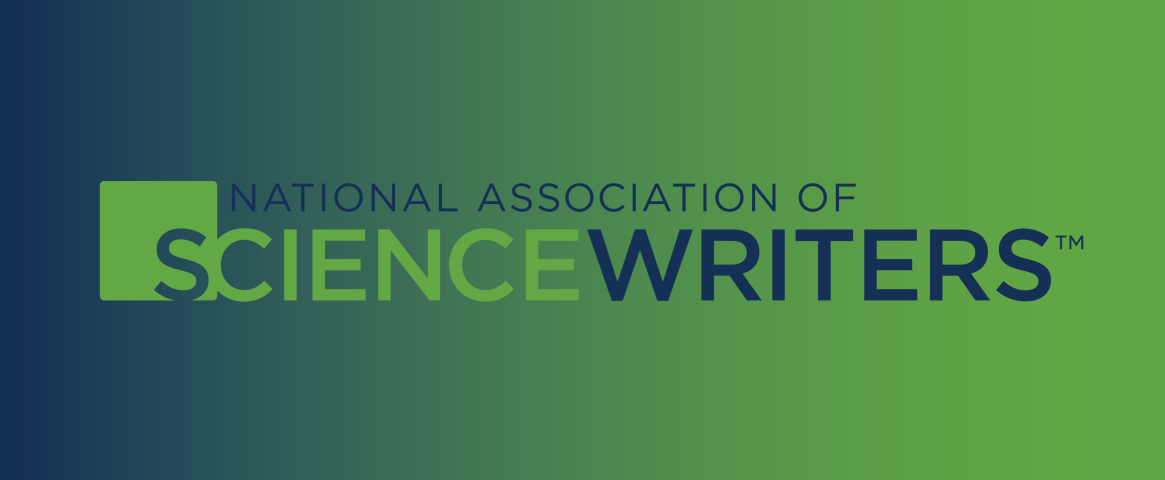Making ends meet on an intern’s salary can be hard. Stipends don’t always cover the full costs of temporarily relocating to a new city or making ends meet while working remotely. Sometimes, prioritizing steps to advance your career can mean putting off other income opportunities that would otherwise serve more immediate financial needs.
At the same time, many initiatives that have in the past offered support to people from underrepresented groups in the U.S. have been defunded or prohibited in many states, potentially making it even more difficult to access financial resources for career development.
To help make internship opportunities accessible to a diverse pool of talent, the National Association of Science Writers is pleased to again offer the NASW Diversity Summer Fellowship for talented students and early-career science communicators undertaking summer internships.
Up to six fellows will be selected by the NASW Diversity Committee for this 2024 program offering. Fellowship recipients will receive:
- $3,000 to help complete a U.S.-based science communication internship during the summer of 2024 (internships that extend into the fall also count toward eligibility);
- A one-year complimentary membership to NASW.
Note that the NASW Diversity Summer Fellowship will not qualify you for nor place you in an internship; applicants should secure these opportunities on their own. Fellowship monies will be disbursed at the beginning of the summer, after confirmation and acceptance of an internship offer.
Who Should Apply
The fellowship is open to anyone who is underrepresented in science communication — including those from racial and ethnic minorities, members of the LGBTQ+ community, neurodivergent individuals, and those with disabilities or chronic illnesses— who plan to complete a science communication internship during the summer of 2024 (internships that extend into the fall also count toward eligibility).
Additionally:
- The internship must be based in the U.S. International applicants do not need to reside in the U.S.
- The internship can be in science journalism or any other science communications field and can be in any medium — print, digital, audio, video, or multimedia. Preference will be given to students and early-career professionals.
- Applicants need not have received an internship offer at the time they submit their application, but will be required to provide confirmation of an offer and acceptance before funds are awarded.
How To Apply
To apply online to the NASW Diversity Summer Fellowship, click here for the Submittable portal. You will be asked to upload a resume and two of your own original work samples (these do not need to be published works, but should represent high quality science communication).
You will also be asked to respond to the following writing prompt:
In 500 words, describe yourself and tell us why you are interested in this fellowship, including:
- How your background informs the way you approach your journalism/communications work.;
- Your career goals as they relate to science communication.;
- Any financial hardship that this fellowship would help alleviate.;
- How you anticipate the fellowship will help advance your career goals.
Applications are due by April 1, 2024 at 11:59 PM Eastern Time. Winners will be notified no later than May 15, 2024.
Frequently Asked Questions
Do I need to be a U.S. citizen to apply? You do not need to be a U.S. citizen to be eligible, nor do you need to reside in the U.S. However, your internship must be U.S.-based, even if you are working remotely. We cannot grant fellowships to applicants completing internships outside of the U.S.
Does my internship need to be U.S.-based? Yes. We can only grant fellowships to support U.S.-based internships. However, you do not need to reside in the U.S. and you do not need to be a U.S. citizen to be eligible.
Do I have to have an internship in hand to qualify and apply for this opportunity? No, you can apply without having secured an internship. However, you must have accepted an internship offer and submit confirmation before fellowship funds are distributed.
Is this fellowship amount taxable? Because this amount constitutes earned income, recipients should plan their expenditures accordingly for any potential taxed amounts.
How have past recipients benefited from this opportunity? Browse NASW announcements to see names of past recipients and read testimonials from our 2022 cohort.
Questions? Contact NASW Diversity Committee chair Nicholas St. Fleur and team at diversity@nasw.org. Thank you to Nick and NASW Board members Kat Eschner, Amanda Heidt, and Kelly Tyrrell for managing this year’s program. And tag #SciWriDiversity in your social media posts to join the conversation.
Founded in 1934 with a mission to fight for the free flow of science news, NASW is an organization of ~ 2,800 professional journalists, authors, editors, producers, public information officers, students and people who write and produce material intended to inform the public about science, health, engineering, and technology. To learn more, visit www.nasw.org and follow NASW on LinkedIn.




